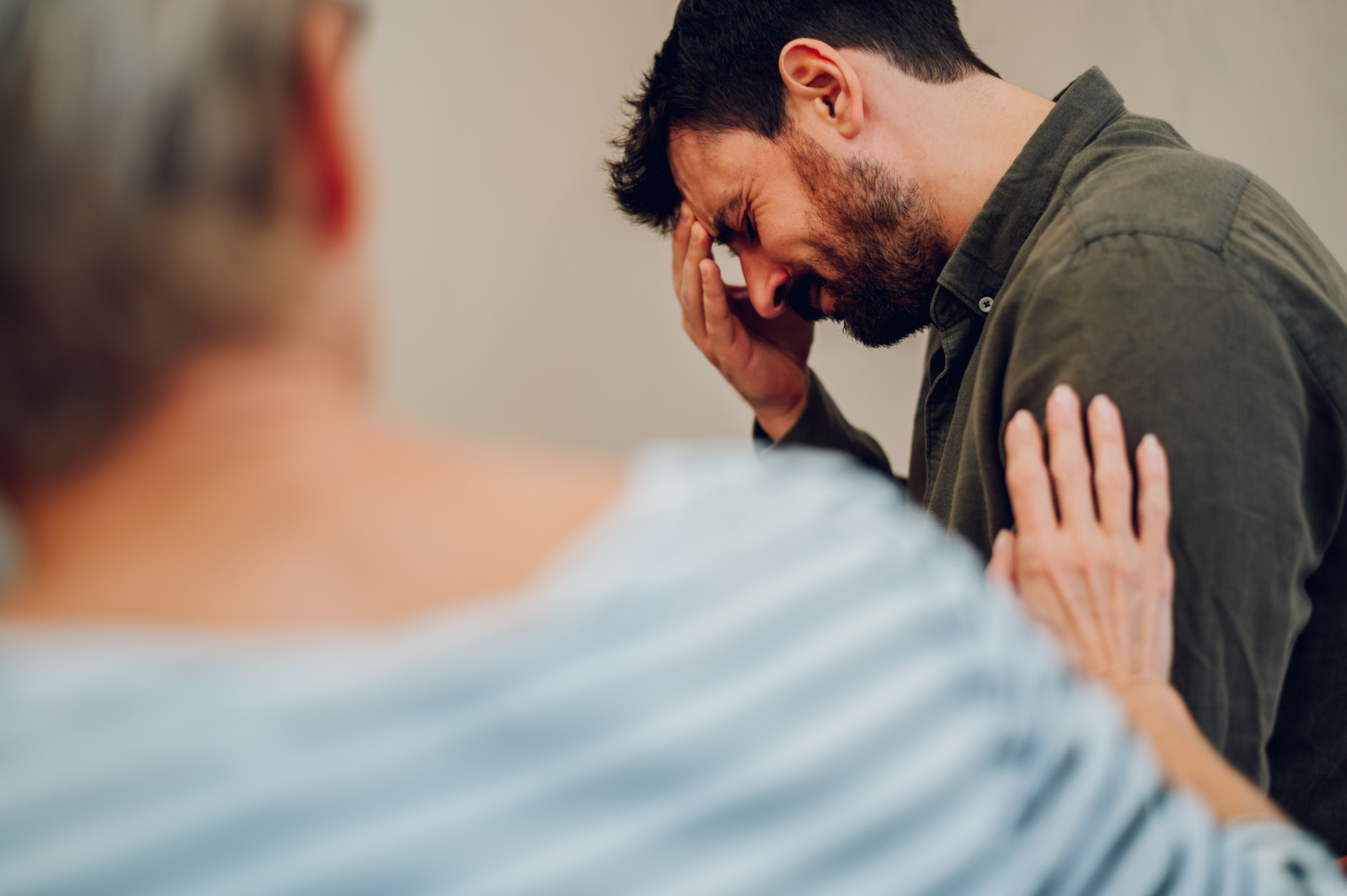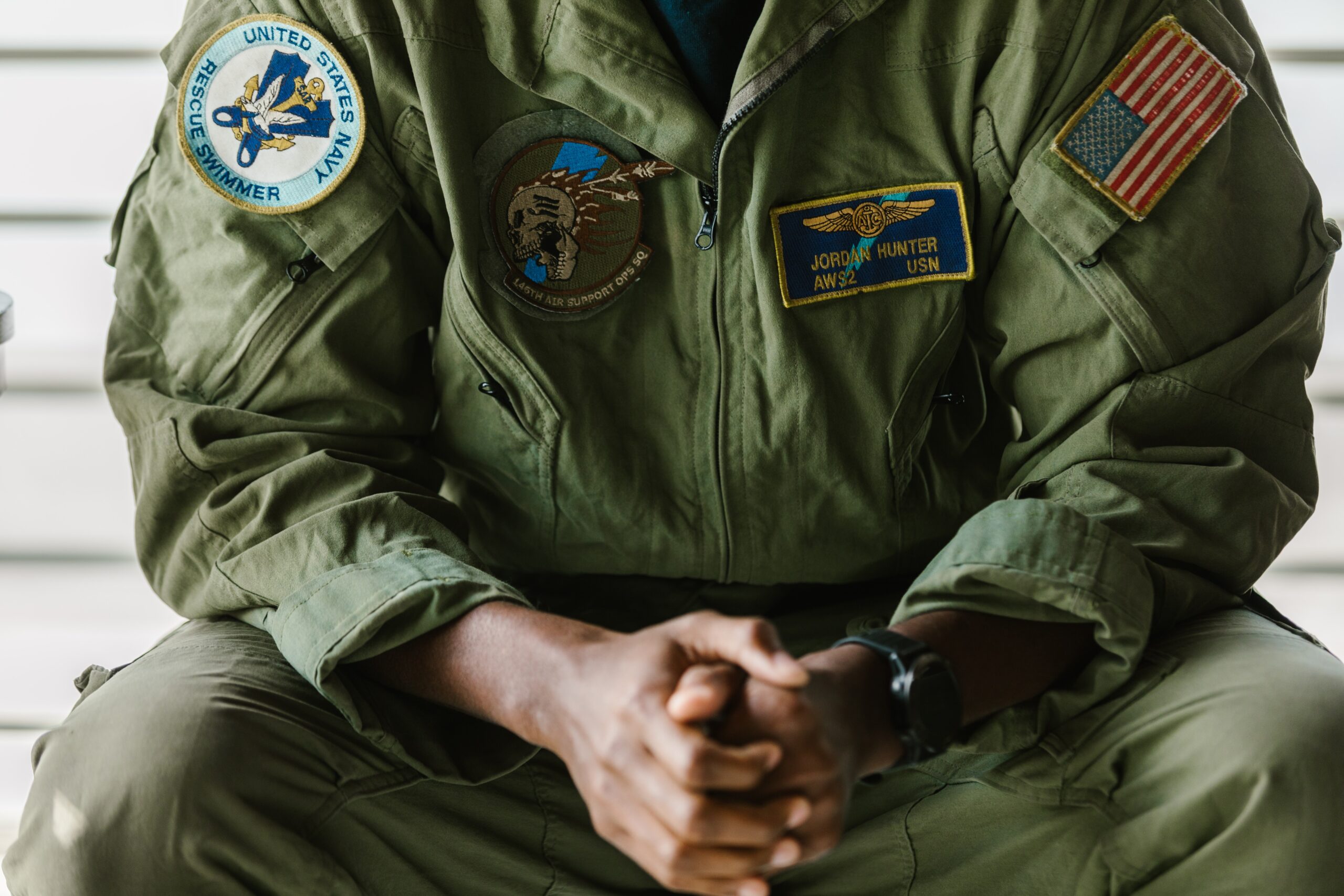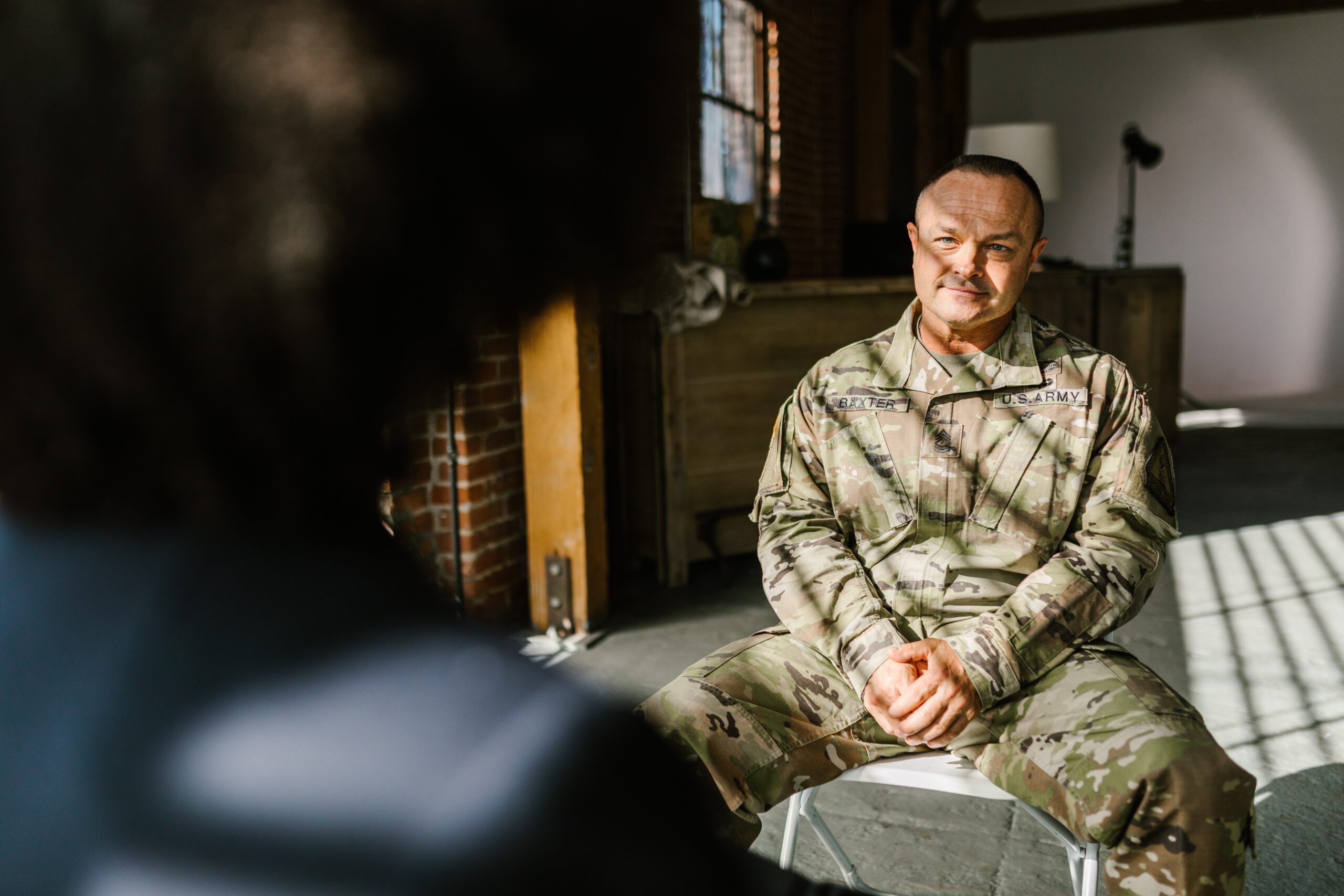War leaves lasting marks on those who bravely serve. For veterans, PTSD can be a silent, but powerful force. It changes how they think, how they feel, and how they relate to the world around them. Understanding veteran PTSD symptoms can help foster empathy, awareness, and support–and it can help connect veterans with PTSD to the resources they need.
The Nature of PTSD in Veterans
PTSD in veterans stems from exposure to traumatic events during military service, including combat, training accidents, or other distressing experiences. Because of the unique stressors of military life, PTSD is a crucial issue within the veteran community.
Recognizing PTSD Veteran Symptoms
Symptoms that a veteran is suffering from PTSD can be categorized into four main types: intrusive memories, avoidance, negative changes in thinking and mood, and changes in physical and emotional reactions. Each category encompasses a range of symptoms, which are detailed below.
Intrusive Memories
- Recurrent, unwanted distressing memories of the traumatic event.
- Flashbacks, where the veteran feels as though the traumatic event is happening again.
- Nightmares related to the traumatic event.
- Severe emotional distress or physical reactions to reminders of the traumatic event.
Avoidance
- Steering clear of reminders of the traumatic event, which may include places, activities, or people.
- Avoiding thinking or talking about the traumatic event.
Negative Changes in Thinking and Mood
- Negative feelings about oneself or others.
- Hopelessness about the future.
- Memory problems, including not remembering important aspects of the traumatic event.
- Difficulty maintaining close relationships.
- Feeling detached from family and friends.
- Lack of interest in activities once enjoyed.
- Difficulty experiencing positive emotions.
- Feeling emotionally numb.
Changes in Physical and Emotional Reactions
- Being easily startled or frightened.
- Always being on guard for danger.
- Self-destructive behavior, such as drinking too much or driving too fast.
- Trouble sleeping.
- Trouble concentrating.
- Irritability, angry outbursts, or aggressive behavior.
- Overwhelming guilt or shame.
PTSD: Beyond the Symptoms

Beyond the primary veteran PTSD symptoms, PTSD can significantly impact a veteran’s life. Addiction, relational issues, career and financial challenges, and physical health issues may come into play as well. Substance abuse and alcoholism are common, as veterans may turn to drugs or alcohol to cope with their pain. Relationships and social connections often suffer due to irritability, withdrawal, and emotional numbness, causing isolation and loneliness. Professionally, PTSD can hinder job performance and stability, resulting in financial difficulties. Plus, the stress associated with PTSD can exacerbate physical health issues, creating a complex web of challenges. Recognizing and addressing these side effects is crucial in supporting veterans through their recovery journey, emphasizing the importance of comprehensive care and support systems.
What to Do If You Suspect PTSD
If you think you or a loved one might be dealing with posttraumatic stress disorder (PTSD), acknowledging the concern is a crucial first step. Here’s what you can do:
Seek Professional Help: Contact a mental health professional experienced in treating PTSD. They can offer a proper assessment and discuss treatment options tailored to individual needs.
Veterans Affairs (VA) Resources: For veterans, the VA offers specialized programs and support for PTSD. Reaching out to them can connect you with valuable resources and treatment options.
Support Networks: Engage with support groups where you can share experiences and coping strategies with others facing similar challenges. These groups provide a sense of understanding and community.
Educate Yourself: Learning more about PTSD can help you and your loved ones understand the condition better, enabling you to recognize symptoms and effective coping mechanisms.
Practice Self-Care: Encourage activities that promote well-being and relaxation, such as exercise, mindfulness, and hobbies. Self-care is a vital part of managing combat veteran PTSD symptoms.
Remember, seeking help is a sign of strength. Taking action toward diagnosis and treatment can pave the way for recovery and a return to a fulfilling life.
Support and Treatment for Veteran PTSD

Understanding these symptoms is the first step toward helping veterans cope with PTSD. Treatment options include psychotherapy (such as cognitive-behavioral therapy and exposure therapy), medication, and support groups, which can offer significant relief. Early intervention is crucial, as it can help prevent symptoms from worsening over time.
For veterans facing drug and alcohol addiction, enrolling in a rehab for veterans may be the next right step. At Southern California Recovery Centers (SCRC), our comprehensive male-only drug and alcohol rehab for veterans programs cater to the unique circumstances and complexities of veteran life.
Embracing Hope and Healing: Our Collective Call to Action
Veterans who have served their countries face a unique set of challenges upon returning to civilian life, with PTSD being among the most significant. As a society, it is our collective responsibility to support our veterans, offering them the care and understanding they deserve. Let us honor their service by ensuring they receive the support needed to navigate the challenges of PTSD, fostering a community of compassion and resilience.



